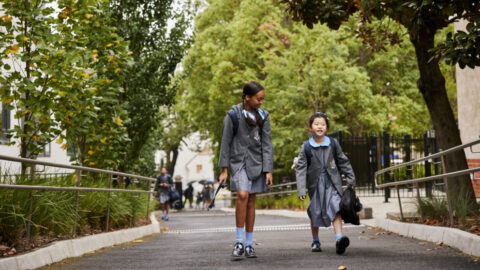Independence linked to Resilience

As we transition into the latter part of the year, our focus as educators shifts towards fostering independence in our girls.
I firmly believe in the correlation between independence and resilience among students. Through my extensive experience in teaching and working with children, I’ve observed that independent children exhibit greater resilience and adaptability when faced with challenges.
Independence entails more than just completing tasks – it cultivates critical thinking skills. Independent students approach problems with a mindset geared towards finding solutions themselves, rather than relying on others to resolve issues for them. This self-reliance empowers them to take on additional responsibilities, fostering a sense of pride in their accomplishments and bolstering their confidence and self-esteem. Moreover, it ignites intrinsic motivation, propelling them towards academic and personal success.
The journey towards independence begins with small steps. As parents, it’s our responsibility to guide and support our girls in this process. In the early years, such as Prep and Year 1, children will receive guidance through resources such as our Junior School Independent Me Guide, which outlines strategies for gradually building independence. Simple tasks like carrying their own bags and navigating our School grounds independently, mark significant achievements for these young students.
In talking to some of our Year 1 girls, the topic of carrying their own bags and being able to enter Barbreck at the gates and taking themselves to the classroom without a parent is a major achievement. Some girls said they were already doing this, while today one girl in Year 1 very proudly told me she came up the drive and into the building “all by myself!”
For older students, independence encompasses skills like managing their schedules, organising their belongings, and taking initiative in problem-solving. Encouraging older students to read timetables, prepare their materials, and address tasks without constant reminders fosters autonomy and accountability. Similarly, involving them in household responsibilities, such as meal planning and grocery shopping, reinforces their independence beyond the school setting.
In contrast, dependence breeds learned helplessness, hindering students’ abilities to confront challenges effectively. Instead of seeking solutions, dependent individuals often default to a state of uncertainty, expecting others to intervene. This learned behaviour parallels the comical scenario of being ‘stuck on an escalator,’ where individuals wait for external assistance rather than taking action.
I urge parents to actively seek opportunities to gradually reduce the level of assistance provided to their daughters. By encouraging them to tackle tasks independently, we equip them with invaluable life skills that will serve them well into adulthood.
Embracing independence not only fosters resilience but also empowers our girls to navigate the complexities of life with confidence and resourcefulness.


